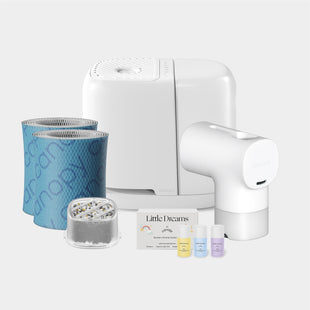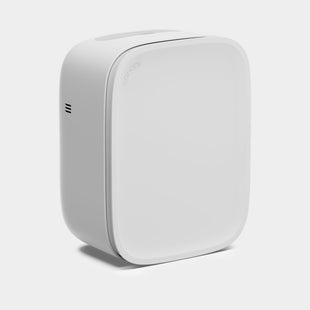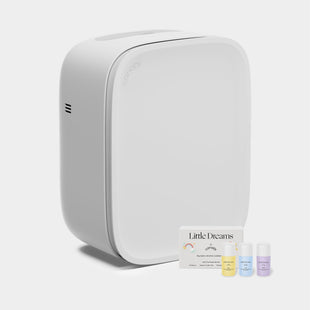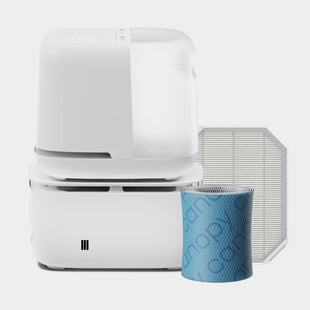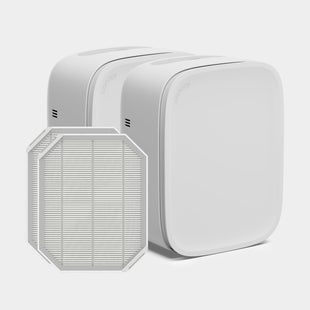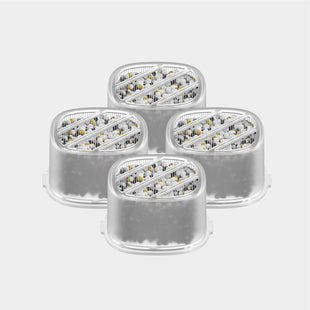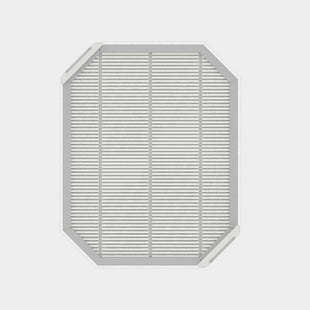For many of us, pet ownership is one of the greatest joys in life. Welcoming an animal into your home creates a bond of unconditional love and a promise to take the best possible care of them. This can mean making some changes to your living space and housekeeping routine. You might be prepared for cleaning up toys, vacuuming fur, and wiping up the occasional accident, but have you thought about your indoor air quality?
Having minimal indoor air pollution is important for you and any other humans you may share a space with, but it’s also essential for pets. Let’s explore the relationship between pets and air quality, and what you can do to ensure fresher air for everyone in your home.
How Indoor Air Quality Affects Pets
Part of responsible pet ownership is creating a safer space for your animal to thrive. In addition to reducing obvious hazards from your home, this could also mean optimizing your indoor air quality for dogs, cats, and any other pets you care for.
Like us, pets are affected by pollutants that get trapped indoors, from chemicals to smoke. But because our animals are smaller than we are, they may also be more sensitive to irritants. In fact, research indicates that pets exposed to high levels of indoor air pollution face a greater risk for irritation1.
What Can Reduce Air Quality for Dogs, Cats, and Other Pets?
Naturally, fresher indoor air is best for you and your pets, while polluted air could pose risks. Indoor air pollution can come from many sources. Some of the most common triggers for pet health issues include:
- Smoke: In addition to tobacco smoke, fumes from fireplaces, nearby wildfires, and woodburning stoves can also affect your pet.
- Scented products: Fumes from candles, air fresheners, and other household products with fragrances can be harmful for pets, with their severity ranging from mild—causing mild discomfort—to extremely toxic. Paraffin, for instance, is often used in candles and is dangerous for dogs, cats, and birds2.
- Chemicals: Pesticides and cleaning agents are dangerous for humans and pets alike to breathe, while paints and certain building materials are likewise harmful.
- Gasses: Radon, carbon monoxide, and other particulate matter can pose serious threats for all living things in your home—which is why detectors are available for these dangerous invisible gasses.
- Natural pollutants: Although dust, dander, pollen, and mold don’t stem from manmade sources, they can still cause irritation in pets and people1.
How Pets Affect Your Indoor Air Quality
To complicate matters, pets can also introduce their own share of natural irritants to your indoor air, including:
- Dander: Like humans, pets shed skin particles regularly. If you’re sensitive to animal dander, those symptoms may worsen as it accumulates in your home.
- Hair: Shedding is a nuisance at best. At worst, pet hair can trap dust and dander, distributing it throughout your home.
- Odors: From litter boxes to damp fur, pets bring their own scents into your home. While not necessarily harmful, they can make your indoor air less fresh3.
Improving Air Quality for Dogs, Cats, and Humans

Here’s the good news: It’s entirely possible to have high-quality indoor air, even as a pet owner. The following tips will help you keep your home environment fresh and breathable for you and your animal alike.
Choose Gentle Products
Skip pesticides, candles with paraffin, and other sources of toxins when shopping for household products. Instead, look for formulas with natural ingredients, or those marked as being pet friendly.
Ventilate Your Home
Opening your windows allows fresher air to enter and trapped air to escape. Just check the air quality index for your local area before doing so, since you’ll want to avoid bringing in high concentrations of outdoor pollutants like wildfire smoke and pollen.
Vacuum Regularly
Regular vacuuming eliminates unwanted pet hair, but it also helps to reduce the pollutants you can’t see, like dust and dander. Boost your efforts even further by using a vacuum with a HEPA filter, which can trap finer particles.
Brush and Bathe Your Pet
When you brush and bathe your pet, you’re manually removing loose dander and fur that would otherwise make its way throughout your home. Plus, you’ll reduce any mud, dirt, and pollen outdoor pets might track in.
Use an Air Purifier
One of the simplest yet most effective ways to enhance your indoor air quality is to use an air purifier. These powerful devices reduce irritating airborne particles by drawing them in and pushing them through a filter, then releasing purified air back into your environment. In doing so, an air purifier can help pet owners:
- Trap allergens
- Banish odors
- Filter pollutants
- Breathe easy
- Wake up refreshed
- Fuel your focus
- Cut down on dust
- Enhance overall indoor air quality for dogs, cats, and humans
To get the greatest benefits from your air purifier, be sure to place it in a space your pet frequents, and according to the manufacturer’s recommendations. For example, if they tend to rest in your bedroom, consider keeping the device on a nightstand for cleaner air while you sleep.
When you think of all the things that make home feel like home, stale air isn’t one of them. If dust, pollen, pet dander, and odors are making your space feel less fresh and inviting, Canopy is here to help. Our Bedside Air Purifier uses three layers of HEPA filtration to trap particles that can trigger allergy symptoms and leave rooms feeling stuffy and uncomfortable. We combine the comfort and freshness you want from an air purifier with the ease of use and signature aromas you expect from Canopy.
Sources
- (20 June 2023). Does Poor Air Quality Affect Our Pets? Achoo! Allergy. Retrieved September 30, 2025, from https://www.achooallergy.com/blog/does-poor-air-quality-affect-our-pets/
- Costin, A. (20 March 2023). Pets and Indoor Air Quality. Airzey. Retrieved September 30, 2025, from https://airzey.com/blogs/news/pets-and-indoor-air-quality
- (25 November 2024). 15 Proven Reasons Why an Air Purifier for Pets Is Worth It for Every Pet Owner. Sono Health. Retrieved September 30, 2025, from https://sonohealth.com/air-purifier-for-pets/









